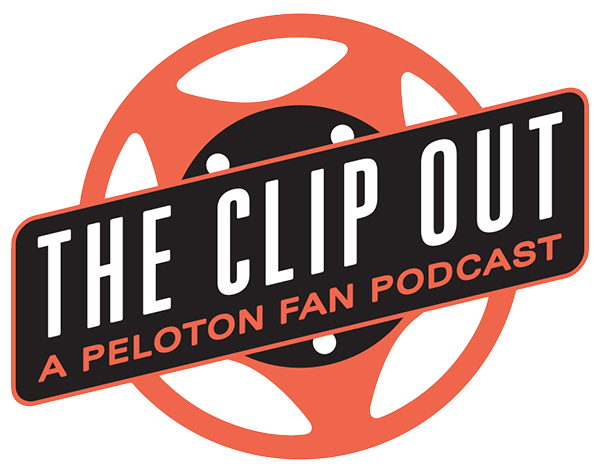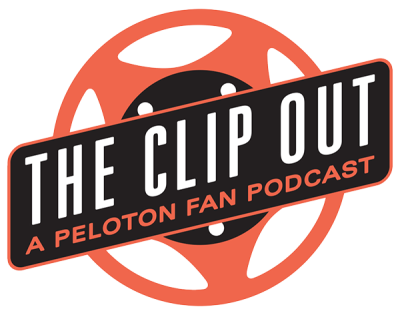Hack Your Protein: Helpful Hints That Don’t Include Chicken or Eggs
By now, you’ve likely heard how essential protein is for our bodies, especially if you exercise regularly. But hitting those daily protein targets can sometimes feel like a never-ending chore—full of math and meal planning! Let’s be honest: protein doesn’t always have the fun reputation that carbs do. For many, hitting daily protein goals means relying heavily on chicken or eggs, and if you’re in that camp, meeting those goals day after day can start to feel a bit… boring…and trying to figure out solutions can feel like a full time job.
So, what do you do if you’re feeling like you’ve clucked out on chicken and are craving a bit more variety, or you just need some help adding additional protein sources so you don’t feel like you’re constantly thinking about protein/eating protein all. day. long? You look for ways to hack it!
Lucky for you, we’ve got you covered! Dive into our (not exhaustive, but hopefully helpful) guide to shaking up your protein game!
Note: This article will not cover caloric needs, as those vary significantly depending on an individual’s nutritional requirements and fitness goals.
Protein’s Role in Overall Health and Aging
First, let’s talk science—why you need protein. Protein is essential for your entire body, particularly your muscles. It plays a key role in recovery, repair, and growth after workouts, while also supporting your immune system, balancing hormones, and aiding in injury healing. As we age, protein becomes even more vital for maintaining muscle mass and function, helping to slow the natural muscle loss that accelerates with each passing decade. So while it’s great for supporting your fitness goals, protein is also fundamental for overall health and well-being.
How to Calculate Your Protein
The Food and Nutrition Board of the Institute of Medicine, along with the American College of Sports Medicine, recommend consuming 1.2 to 1.7 grams of protein per kilogram of body weight daily. Protein requirements vary within a range rather than a fixed number. For instance, a person weighing 100 lbs would need between 54 to 77 grams of protein per day, based on these guidelines. To convert pounds to kilograms, multiply your weight in pounds by 0.453592 and round to the nearest hundredth. Or, you can Google “convert pounds to kilograms” and let Google do the work for you.
It’s Hacking Time
Now that you’ve got the “why” and “how” down, let’s get real—the hard part is actually hitting those protein goals on the daily. Putting the protein puzzle together really can feel like a full-time job! A lot of people take the path of least resistance and stick to the usual suspects like chicken and eggs, but let’s be honest, that routine gets old fast. And, even if you’re a die-hard chicken fan, it’s always good to have a few clever tricks up your sleeve to mix things up.
So, if you find yourself thinking that it’s time to level up your protein game we’ve made a list of our favorite hacks and products, making it easier to hit your daily protein goals!
Clear Whey
Clear whey, a type of protein powder made from whey protein isolate, is designed to be mixed with water to create a light, refreshing drink. Unlike traditional whey protein, which has a thicker, creamier texture, clear whey uses advanced filtration to remove most of the fat and lactose, leaving a pure protein isolate. It can be enjoyed by simply mixing with water, pouring over ice, or adding to smoothies, or mocktails. Note: Since whey is dairy-based, clear whey isn’t vegan-friendly. My personal favorite is Naked Nutrition’s lemon-flavored clear whey, which tastes a lot like classic Crystal Light—absolutely delicious. Incidentally, if you’re looking to pair your protein with creatine, Crystal has been testing, and enjoying, Naked Nutrition’s creatine monohydrate (which is another topic we’re looking forward to covering!).
Clear whey can add up to 20g of protein per serving, and it’s as simple as drinking water—no chicken required! If clear whey sounds like something you’d like to try, we recommend grabbing a transparent shaker bottle, like this one, so you can easily see when the whey has fully mixed and is ready to enjoy.
PB2 Protein Powder
If you love peanut butter but are disappointed that it’s more of a fat source than a protein boost, meet my, and maybe your, new best friend: PB2 Protein Powder. This peanut-flavored gem packs 20g of protein per serving and is incredibly versatile! You can add it to smoothies, oatmeal, pancakes, baked goods, or even mix it into Greek yogurt sweetened with honey (Oikos Pro plain Greek yogurt has 25g of protein, by the way—combined, that’s 45g of protein in one go!). You can even toss it with popcorn for a tasty snack. Honestly, get creative and experiment your heart out with this one. It satisfies that peanut butter craving without all the extra fat.
Costco Tuna
If you’re tired of land chicken, maybe it’s time to try some “chicken of the sea.” Tuna, in general, is a fantastic protein source, but hiding in the canned goods aisle at Costco is a real heavy hitter: Kirkland brand Albacore tuna. This wild-caught tuna delivers an impressive 42g of protein per can. 42 grams!
Thanks to Selena Samuela and the recipe she recently posted to Instagram, tuna melts have become my hyperfixation meal. She recommends serving it on sourdough (which, I can confirm, is delicious), but if you want to boost your fiber along with your protein, swap in Dave’s Killer Bread 21 Whole Grains. With 5g of protein and 5g of fiber per slice, you’ll be getting 52g of protein and 10g of fiber in one meal if you go for a two-slice sandwich.
Chickpeas (Plus a Recipe!)
Ahhhh….the little legume that could. Chickpeas are one of the most nutrient-dense foods out there. According to the Mayo Clinic, one ½ cup serving of chickpeas contains nearly 20g of protein and 5g of dietary fiber. A word to the wise: chickpeas need to be rinsed before eating. Trust me on this. If you don’t rinse them, you’ll think I’m insane for suggesting them as a reasonable, and palatable, hack.
And, btw, I. love. chickpeas. Like… a lot. In fact, I love them so much, and “hide” them in so many things, my family often asks me “did you put chickpeas in this?” These tasty little legumes aren’t just for hummus. They really do make great additions to all kinds of meals (spaghetti, taco meat, sloppy joes, etc.), as well as a nice crunchy snack if you want to roast them. But my favorite way to enjoy them is in the world’s most versatile salad (probably). Want the recipe? Pffft. Of course you do.
World’s Most Versatile Salad (probably)
1 can of chickpeas (rinsed in a colander until no longer foamy)
1 Persian cucumber, diced
2 TBSP Ken’s Simply Greek dressing
1 TBSP low-fat crumbled Feta cheese
Salt & Pepper to taste
That’s it! It’s that easy. Toss and enjoy, or if you want to jazz it up (again, because it’s the world’s most versatile salad), add any, or all, of the following to it: diced cherry tomatoes (any color), olives, diced red onion, diced avocado, and/or diced bell pepper (any color). This salad pairs well with just about anything, but I personally love it with a tuna melt (see above).
Good Culture Cottage Cheese
Ok, hear me out. I realize that this is a polarizing food choice and I get it. I, too, have not always enjoyed cottage cheese. But, then I met Good Culture cottage cheese and, let me tell you, this is different. It’s not, well, slimy like other cottage cheese brands can be. If you’re a fan of burrata, I would even go so far as to say that it’s Stracciatella-adjacent.
Good Culture cottage cheese really is different. Really. Unlike some other cottage cheese brands that, perhaps, have wronged you in the past, Good Culture cottage cheese is cultured (hence, the name), and not in a “refined manners” sort of way. This cottage cheese contains live and active cultures of Lactococcus ssp. and Lactobacillus ssp, which, incidentally, also makes it a source of probiotics. Additionally, Good Culture only uses five ingredients: skim milk, whole milk, cream, sea salt, and live and the aforementioned active cultures and has a proprietary recipe for small curds, resulting in a thicker, creamier texture (aka, not slimy).
Like PB2 Protein powder, Good Culture cottage cheese is super-versatile. Top it with berries and a drizzle of honey, mix it with Everything But the Bagel seasoning and scoop bell pepper spears into it, add it to Sloppy Joe mix (shhh….don’t tell the kids!), top your spaghetti with it, you can even make pancakes with it. This protein hack has side hacks for days.
Shrimp
Small name, big impact. These little (and sometimes big) guys are relatively quick and easy to eat as a snack, add to a salad or pasta dish, or serve as the star of a meal. A 3oz serving of medium shrimp offers around 20g of protein, and they’re relatively low in calories and fat. Best of all? They’re super easy to find. Nearly every grocery store has a pre-made pack ready for you to grab and go, making it an excellent hack if you happen to be in a hurry and need a quick hit of protein on the run. Anyone can eat a protein bar while driving, but it takes a real baller to roll up with a shrimp snack (but don’t forget to pack a wet wipe).
Plant-Based Protein Sources
Curious about plant-based protein sources? Or, just want to add some variety to your diet? In addition to the chickpea salad recipe above, check out these muscle building marvels that offer more protein than an egg.
Seitan
A filling and chewy plant-based protein typically found near tofu in most grocery stores and, according to the USDA, it provides 17g of protein per 2 oz serving. On its own, seitan, pronounced “say-tan” (you know…like the devil), has a mild flavor reminiscent of a portobello mushroom or chicken. It’s texture makes it a versatile meat substitute that absorbs other flavors and effortlessly fits into curries, stir-fries, salads, or tacos.
Sunflower Seeds
Yep. That ballpark staple is a great source of protein. In fact, according to the USDA, ¼ cup of shelled seeds has 7 grams of it, so grab a handful next time you’re feeling snacky. Or, toss them in a salad and enjoy a little extra crunch–and protein.
Edamame
This popular sushi restaurant appetizer provides around 10g of protein per half cup and, btw, Costco sells them in individual packages that make it SUPER easy to steam-and-go.
Lentils
These protein and fiber-rich legumes pack 18g of protein per cooked cup. Available in a rainbow of colors—red, green, yellow, black, and brown—they’re incredibly versatile in the kitchen. With the cold months just around the corner, my personal favorite way to enjoy them is in a soup. Oh, you want that recipe, too? Say no more.
Hearty (and Easy!) Lentil Soup
1 16-oz bag of green lentils
10 cups water
2 tsp Himalayan sea salt
1 tsp onion powder
¼ tsp cayenne powder
1 14-oz can fire roasted diced tomatoes
1 TBSP low-sodium soy sauce
1 generous handful baby spinach
4 TBSP Better than Bouillon Seasoned Vegetable base*
Black pepper to taste
Add water to a large stock pot and place on the stove over medium heat. Add salt and stir to combine. Add lentils and all other ingredients and stir to combine. Bring to a boil then reduce to a simmer and cover with a lid. Cook for 1-2 hours, or until lentils are soft.
*If you aren’t vegetarian, you can substitute 4 TBSP of Better than Bouillon Roasted Chicken base.
Tahini
An exotic name for a simple product. While most people associate it with hummus, tahini itself is simply a paste made out of sesame seeds. And, while that may not sound all that delicious, tahini is actually an excellent base for sauces and salad dressings. At 7g of protein per 2 tablespoons, it’s an incredibly easy way to add just a little bit more protein to a salad or a grain bowl. And, I don’t know about you, but adding 7g of protein with 2 tablespoons of anything sounds like a pretty good deal.
Vega Protein Powder
What good is a list of hacks without something convenient, right? We’ve tried a lot (a LOT) of protein powders around here and, in our opinion, Vega Sport checks all the boxes. High in protein, plant based,dairy-free, gluten-free, and you can order it on Amazon. Drink it as a traditional shake, add it to your oatmeal, add it to your Greek yogurt, even add it to your ice cream if you want to. However you choose to consume it, one serving of Vega will put 30g of protein into your day.
Hacks for the Hacks
Ok, so now that we’ve given you all of these hacks, what if we took it one step further and gave you some hacks for those hacks? Because that’s exactly what’s going to happen.
Clear Whey…While Working Out
You’re probably going to drink water while you’re exercising, right? Well, why not drink some water with 20 grams of protein in it? That’s exactly what happens when you combine clear whey with water and a workout. And, because you’re likely working up a thirst, that 20g of protein water will go down faster than a HIIT interval.
Protein Shake, But Make it Hot
What if I told you that you can take your favorite pre-made chocolate shake, like Fairlife or Premiere Protein, and warm it up, thereby turning your shake into hot chocolate? Imagine, sitting by the fire on a cold winter’s night, enjoying a cozy mug of hot cocoa while also pumping your protein goals up. How’s that for a warm, fuzzy feeling of multitasking bliss?
Protein Shake, But Make it Frozen
How about a hack that gives you a way to enjoy a protein-packed milkshake on a hot summer’s day? Here are two of my personal favorite recipes, one plant-based, one dairy-based, that even my very picky children love.
Peanut Butter, Chocolate, Banana Shake
1 scoop of PB2 Protein Powder
1 generous cup of frozen, sliced bananas (which, they sell in the frozen fruit section, btw)
1 ¼ cup of Silk Chocolate Almond Protein Milk (or any chocolate non-dairy milk)
Combine in a blender and blend until thick and smooth
Nutter Butter Shake*
1 scoop Ghost Nutter Butter Whey Protein Powder
1 generous cup of frozen, sliced bananas
1 ¼ cup non-dairy milk of choice (I prefer almond or oat)
Combine in a blender and blend until thick and smooth
*Prefer ice cream to a shake? Slightly reduce the amount of non-dairy milk.
Breakfast in 5 minutes or Less
And, finally, (and especially if you’re pressed for time in the morning) let’s hack your breakfast with a recipe that will deliver around 23g of protein in 5 minutes or less.
Peanut Butter and Banana Oats with Egg Whites
(Yes, egg whites!)
1 package of instant steel cut oatmeal (ex: Better Oats brand)
1 scoop of PB2 Protein Powder
1 cup of Silk Almond Protein Milk, unsweetened
3 TBSP egg whites
½ fresh banana, sliced
1 TBSP mini chocolate chips
In a *microwave-safe bowl, combine the oats with the protein milk and microwave on high for 2 minutes. Carefully remove bowl from microwave and stir. Gently drizzle in egg whites, while stirring continuously. Return bowl to microwave and cook on high for an additional 30 seconds. Remove bowl from microwave again and stir in protein powder, adding additional almond milk to achieve desired consistency. Top with sliced bananas and chocolate chips.
*Ensure that the bowl you’re using is at least twice the size of the liquid it contains. This will provide ample space for cooking while preventing spills and messes, thereby making sure this 5-minute time-saving breakfast doesn’t turn into a 15-minute frustration-filled one that requires a sticky cleanup.
More Protein, Less Stress
Ultimately, adding a variety of protein to your diet really is easier than it seems. With a few simple hacks, you can effortlessly diversify your meals without stressing about food all day long. You’ve just gotta look for the hacks. And, whether you’re trying plant-based alternatives, are curious about lesser-known options, or simply seeking a change, incorporating overlooked protein sources and using smart strategies can help you meet your nutrition goals—without making it feel like a full-time job.
And here’s a friendly reminder for my fellow perfectionists: not every day will go perfectly. In fact, not every meal will either. But just like with anything in fitness, it’s the steady, consistent effort that truly makes the difference in the long run.
Medical note: If you have kidney issues, it’s important to monitor your protein intake, so be sure to consult with your doctor beforehand.
Happy hacking!
*Some parts of this article are a collaboration with partners or include affiliate links that support The Clip Out.
Tune in to The Clip Out every Friday to hear Tom and Crystal’s take on this and other hot Pelotopics. We’re available on Apple Podcasts, Spotify, Google Podcasts, iHeart, TuneIn. Be sure and follow us so you never miss an episode. You can also find the show online on Facebook.com/TheClipOut. While you’re there, like the page and join the group. Lastly, find us on our YouTube channel, YouTube.com/TheClipOut, where you can watch all of our shows.
See something in the Peloton Universe that you think we should know? Visit theclipout.com and click on Submit a Tip!
Latest Podcast

Subscribe
Keep up with all the Peloton news!









